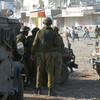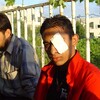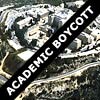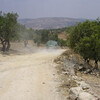
Take No Prisoners: The Fatal Shooting of Palestinians by Israeli Forces During Arrest Operations
26 May 2005
During the second intifada, Israel formally adopted a policy of assassinating Palestinians suspected of membership in armed organizations waging battle against it. In an attempt to counter the sharp criticism against this policy, Israel argued, among other things, that targeted assassinations were only carried out when it was unable to apprehend the persons targeted for assassination. According to B’Tselem’s figures, since the beginning of 2004, Israelis security forces have killed eighty-nine Palestinians during operations that the defense establishment refers to as arrest operations. At least seventeen of the persons killed were not wanted by Israel, but were civilians who were not suspected by Israel of having committed any offense. In addition, at least forty-three of those killed were unarmed, or were not attempting to use their arms against Israeli security forces at the time they were killed. None of these cases were investigated. Read more about Take No Prisoners: The Fatal Shooting of Palestinians by Israeli Forces During Arrest Operations








